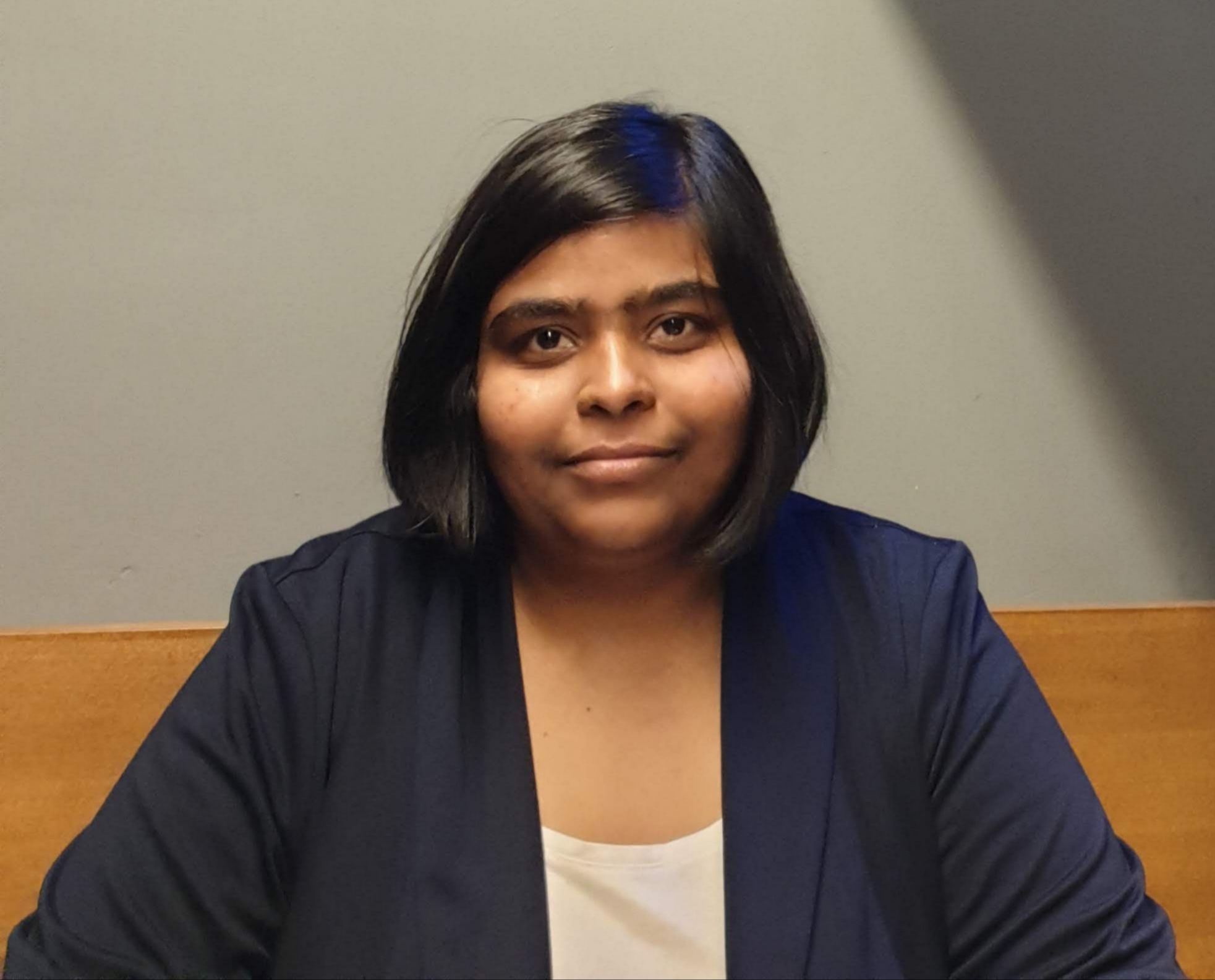Short Bio
I am a Lecturer (US Assistant Professor equivalent) at the Gatsby Unit, University College London. Previously, I was an Applied Scientist at the AGI Foundations Lab at Amazon, where I worked on fundamental research on the theory and science of scaling large language models. I earned my Ph.D. from the International Max Planck Research School for Intelligent Systems with Debarghya Ghoshdastidar at the Theoretical Foundations of Artificial Intelligence group, Technical University of Munich, and Ulrike von Luxburg at the Theory of Machine Learning group, University of Tuebingen. My thesis received the Wilhelm Schickard Dissertation Award (Outstanding Dissertation). During my Ph.D., I also spent 6 months at the Causality Lab of Amazon Research.
My research aims to develop efficient, reliable, and trustworthy machine learning models by understanding the theoretical foundations of deep learning and causal learning. Deep learning theory and causality present some of the most fascinating challenges in modern machine learning. Classical theories of statistical learning and optimization often struggle to explain the empirical success of deep learning algorithms or even provide reliable guidance on their behaviour. As models continue to scale to unprecedented levels, revealing emergent abilities, we need fundamentally new theories to explain their behavior. To tackle some of these questions, my research aims to i) develop a unified theory of scaling and ii) understand the learning dynamics and generalization in deep learning. Meanwhile, Causality remains in its nascency, with formal mechanisms still emerging. My research will address open problems in causality, including establishing robust formalisms for causal reasoning and developing frameworks to evaluate causal models.
Recent News
Advisees/Interns
Publications
Most recent publications on Google Scholar.
‡ indicates equal contribution.
On the surprising effectivess of large learning rates under standard width scaling
Moritz Haas, Sebastian Bordt, Ulrike von Luxburg, Leena C Vankadara*
NeurIPS 2025 (Spotlight Presentation)
On Feature Learning in Structured State Space Sequence Models
Leena C Vankadara*, Jin Xu*, Moritz Haas, Volkan Cevher
NeurIPS 2024 & ICML NGSM Workshop 2024 (Spotlight; Runner up for the best paper award)
Effective Sharpness Aware Minimization Requires Layerwise Perturbation Scaling
Moritz Haas, Jin Xu, Volkan Cevher, Leena C Vankadara
NeurIPS 2024 & ICML HiLD Workshop 2024
Self-compatibility: Evaluating causal discovery without ground truth
Philipp M Faller, Leena C Vankadara, Atalanti A Mastakouri, Francesco Locatello, Dominik Janzing
AISTATS 2024
Reinterpreting causal discovery as the task of predicting unobserved joint statistics
Dominik Janzing, Philipp M. Faller, Leena C Vankadara
A preprint: Arxiv'2023
Explaining Kernel Clustering via Decision Trees
Maximilian Fleissner, Leena C Vankadara, Debarghya Ghoshdastidar
ICLR 2024
A Consistent Estimator for Confounding Strength
Luca Rendsburg‡, Leena C Vankadara‡, Debarghya Ghosdastidar, Ulrike von Luxburg
A preprint: Arxiv'2022
Interpolation and Regularization for Causal Learning
Leena C Vankadara‡, Luca Rendsburg‡, Ulrike von Luxburg, Debarghya Ghoshdastidar
NeurIPS'22: Neural Information Processing Systems. 2022.
Causal Forecasting - Generalization Bounds for Autoregressive Models
Leena C Vankadara, Philipp Michael Faller, Mila Hardt, Lenon Minorics, Debarghya Ghoshdastidar, Dominik Janzing
UAI'22: Uncertainity in Artificial Intelligence. 2022.
Recovery Guarantees for Kernel-based Clustering under Non-parametric Mixture Models
Leena C Vankadara, Sebastian Bordt, Ulrike von Luxburg, Debarghya Ghoshdastidar
AISTATS'21: Artificial Intelligence and Statistics. 2021 (Oral presentation; 3% of all submissions)
On the optimality of kernels for high-dimensional clustering
Leena C Vankadara, Debarghya Ghoshdastidar
AISTATS'20: Artificial Intelligence and Statistics. 2020
On the surprising effectivess of large learning rates under standard width scaling
Moritz Haas, Sebastian Bordt, Ulrike von Luxburg, Leena C Vankadara*
NeurIPS 2025 (Spotlight Presentation)
On Feature Learning in Structured State Space Sequence Models
Leena C Vankadara*, Jin Xu*, Moritz Haas, Volkan Cevher
NeurIPS 2024 & ICML NGSM Workshop 2024 (Spotlight; Runner up for the best paper award)
Effective Sharpness Aware Minimization Requires Layerwise Perturbation Scaling
Moritz Haas, Jin Xu, Volkan Cevher, Leena C Vankadara
NeurIPS 2024 & ICML HiLD Workshop 2024
Self-compatibility: Evaluating causal discovery without ground truth
Philipp M Faller, Leena C Vankadara, Atalanti A Mastakouri, Francesco Locatello, Dominik Janzing
AISTATS 2024
Reinterpreting causal discovery as the task of predicting unobserved joint statistics
Dominik Janzing, Philipp M. Faller, Leena C Vankadara
A preprint: Arxiv'2023
Explaining Kernel Clustering via Decision Trees
Maximilian Fleissner, Leena C Vankadara, Debarghya Ghoshdastidar
ICLR 2024
A Consistent Estimator for Confounding Strength
Luca Rendsburg‡, Leena C Vankadara‡, Debarghya Ghosdastidar, Ulrike von Luxburg
A preprint: Arxiv'2022
Interpolation and Regularization for Causal Learning
Leena C Vankadara‡, Luca Rendsburg‡, Ulrike von Luxburg, Debarghya Ghoshdastidar
NeurIPS'22: Neural Information Processing Systems. 2022.
Causal Forecasting - Generalization Bounds for Autoregressive Models
Leena C Vankadara, Philipp Michael Faller, Mila Hardt, Lenon Minorics, Debarghya Ghoshdastidar, Dominik Janzing
UAI'22: Uncertainity in Artificial Intelligence. 2022.
Graphon based Clustering and Testing of Networks - Algorithms and Theory
Mahalakshmi Sabanayagam, Leena C Vankadara, Debarghya Ghoshdastidar
ICLR'22: International Conference on Learning Representations. 2022
Learning Theory Can (Sometimes) Explain Generalisation in Graph Neural Networks
Pascal Esser, Leena C Vankadara, Debarghya Ghoshdastidar
NeurIPS'21: Neural Information Processing Systems. 2021
Recovery Guarantees for Kernel-based Clustering under Non-parametric Mixture Models
Leena C Vankadara, Sebastian Bordt, Ulrike von Luxburg, Debarghya Ghoshdastidar
AISTATS'21: Artificial Intelligence and Statistics. 2021 (Oral presentation; 3% of all submissions)
Insights into Ordinal Embedding Algorithms - A Systematic Evaluation
Leena C Vankadara, Michael Lohaus, Siavash Haghiri, Faiz Ul Wahab, Ulrike von Luxburg
JMLR. 2023
On the optimality of kernels for high-dimensional clustering
Leena C Vankadara, Debarghya Ghoshdastidar
AISTATS'20: Artificial Intelligence and Statistics. 2020
Measures of distortion for machine learning
Leena C Vankadara, Ulrike von Luxburg
NeurIPS'18: Neural Information Processing Systems. 2018
Vitæ
-
Gatsby Unit, UCL Starting Feb 2025Lecturer (Assistant Professor)
-
Amazon Research January 2024 - nowApplied Scientist II
AGI Foundations, Amazon -
Amazon Research January 2023 - nowApplied Scientist II
Causality Lab -
IMPRS-IS 2018 - 2022Ph.D. Candidate
Theory of Machine Learning Group -
Amazon Research Fall 2020Applied Scientist, Intern
Causality Lab -
Max Planck Institute (MPI-IS) June - December 2018Research Scientist, Intern
Statistical Learning Theory Group -
University of Tuebingen April 2017 – June 2018Teaching Assistant
Theory of Machine learning -
University of Tuebingen 2017Master's Thesis
Theory of Machine learning group -
University of Hamburg 2014 - 2017Master's Student
Masters in Machine learning
